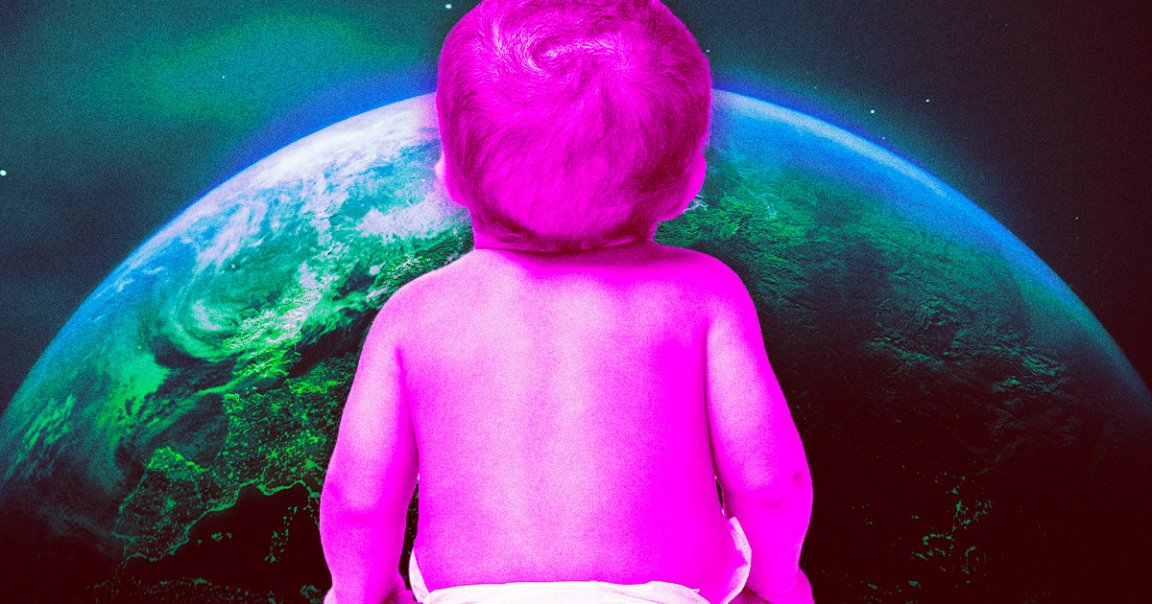
If humans intend to conquer the stars and spread civilization beyond Earth, we really need to figure out sex: can humans conceive and have babies in places such as Mars, where factors like high amounts of radiation and lower gravity could wreck the adult body, nevermind potentially hindering natural conception and deforming growing fetuses?
A growing number of researchers and entrepreneurs want to tackle those questions. Take this startup called Spaceborn United, which we’ve blogged about previously.
The company is still hard at work, according to new reporting from AFP, with the aim of having a baby naturally conceived and born on Mars in the future.
“If you want to have independent human settlements beyond Earth, and if you really want them to be independent, you also need to address the reproductive challenge,” Dutch entrepreneur and Spaceborn head Egbert Edelbroek told the news agency. “It’s important that the Earth and humanity can become a multiplanetary species.”
As a start, Spaceborn has developed a miniature IVF-like device that fertilizes the ovum and grows the resultant embryo while the device spins in order to replicate gravity on Earth. Right now, it’s busy experimenting with mouse gametes and plans to eventually tackle human reproduction.
The Spaceborn team have been experimenting with these devices in a laboratory setting that replicates low gravity conditions. They aim to send mouse specimens in these devices into space at the end of 2024, and then send human embryos into space in several years.
Back in September, Edelbroek told the BBC that it was unethical and medically not sound to achieve natural conception in space, though the most recent article from AFP seems to imply that thinking is shifting.
The scientists had 720 fertilized mice embryos shipped to the space station back in August 2021. They were frozen at the two-cell stage and the aim was to grow them abroad the space station until they reached blastocyst stage, when they have grown to multiple cells.
But there was a problem with the experiment that shows the pitfalls of reproduction in space. Of the embryos incubated on the space station, 23.6 percent reached the blastocyst stage. Embryos incubated in an artificial gravity scenario had a 29.5 percent chance. And back on Earth, a control group of mouse embryos had a 61.2 percent rate of reaching blastocyst stage.
While the results show it’s technically feasible to grow embryos in space, in other words, the conditions are clearly not ideal.
So if you set aside these results, which the Japanese researchers spun as positive, and the optimism of people like Edelbroek, and you drill into the particulars of having sex in space and reproducing, it just seems like a really bad idea.
Any potential colony on the Moon or Mars will be a harsh, unforgiving place due to cosmic radiation unfiltered by a protective atmosphere, and the lack of an Earth-like gravity that would harm our bodies. Not to mention being cooped up in a rabbit warren-like habitable pods with a small group of people that you may grow to detest over time.
At the end of the day, imagine conceiving a child in this kind of environment, like Mars, and they grow up with space-related medical issues because you and your kid live in a place that human bodies are not meant to inhabit.
That’s the conclusion some are reaching. Besides the monetary and environmental cost to develop ships and colonies off planet, the cost on the human body is high — from ruined vision and a faltering immune system to increased chances of cancer and brittle bones.
Maybe we’re meant to stay on the ground and just peer at the stars from the safety of our beautiful home planet.
More on space embryos: Startup Planning to Launch IVF and Embryo Incubator Into Space